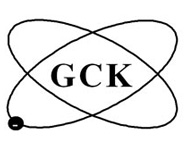Avondlezing georganiseerd door de Groningse Chemische Kring.
Samenvatting
The principles on which fuel cells are based date back to the 1830ies, yet it has taken time for them to evolve. It was fuel cells that powered space missions in the 1960ies to a large extent and numerous concept cars have proven the technology as feasible on the roads of the world. Yet hurdles have been in the way of actual commercialisation. These were mainly material maturity, costs, lifetime limitations and to a large extent – due to the low price of conventionally supplied energy - a lack of market pull. This, however, has fundamentally changed, as environmental issues transitioned from hypothetic “doomsday” predictions to actual threats to nature and humankind. Mitigation of local and global pollution and limitation of green house gas emissions are of utmost importance and demand viable solutions. As technological, infrastructural and political momentum is building up, the question becomes paramount: is fuel cell technology and fuel infrastructure ready and for which applications do what fuel cells make sense? Such questions of attribution require a deep understanding of the technology. What types of fuel cells have been industrialized, what are their respective strengths and weaknesses and how will these affect the structure of our future energy supply system? And most importantly: are any of the fuel cell technologies mature enough to offer a solution to one of humanities most urgent questions?
Curriculum vitae Merit Bodner (1989), originally from Austria, studied technical chemistry at the Graz University of Technology. She graduated in 2013 with her master thesis titled: “Development of an alkaline direct ethanol fuel cell”. In 2017, she graduated with distinction (PhD thesis: “Degradation phenomena in polymer electrolyte fuel cells”) from the Doctoral School Chemical and Process Engineering of the Graz University of Technology in Austria.
Merit Bodner (1989), originally from Austria, studied technical chemistry at the Graz University of Technology. She graduated in 2013 with her master thesis titled: “Development of an alkaline direct ethanol fuel cell”. In 2017, she graduated with distinction (PhD thesis: “Degradation phenomena in polymer electrolyte fuel cells”) from the Doctoral School Chemical and Process Engineering of the Graz University of Technology in Austria.
After her studies she joined Danish Power Systems Ltd in 2017. DPS is a supplier of High Temperature Proton exchange Membrane Fuel cells Membrane Electro Assemblies (HT-PEMFC MEA).
In 2018 she joined Nedstack in Arnhem as a MEA engineer. Nedstack was established in 1998 in Arnhem, the Netherlands. The company is currently Europe’s largest producer of Proton Exchange Membrane (PEM) fuel cells stacks, and is one of the largest producers in the world. Nedstack is using its own unique and patented technology in both its PEM fuel cell stacks and systems.
Introducé(e)s zijn van harte welkom.
Graag vooraf bericht als u verwacht te komen.
Stuur daartoe een mail naar gck@kncv.nl.

